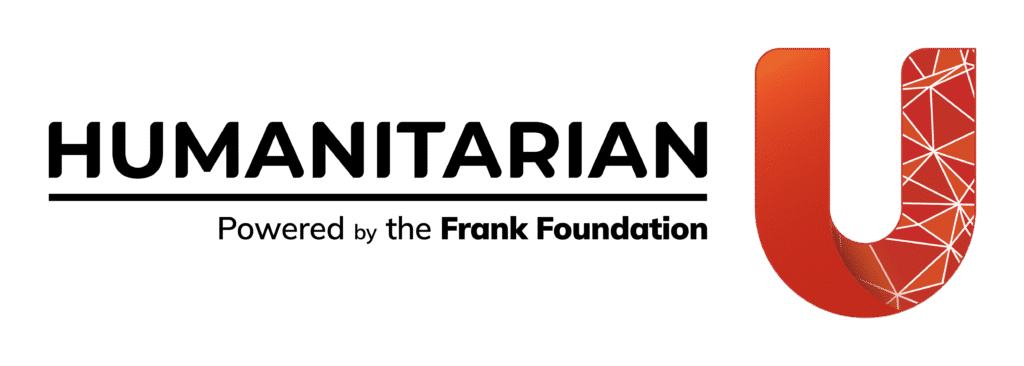Artificial Intelligence (AI) is rapidly becoming part of the humanitarian landscape, influencing how we analyze needs, plan responses, and deliver aid. Yet for many in our sector, AI can seem complex, intimidating, or even risky. At Humanitarian U, we’re committed to helping practitioners understand and responsibly leverage AI, so we’re excited to spotlight ALNAP’s Explain AI resource, a practical guide tailored for the humanitarian context.
What is ALNAP’s Explain AI?
ALNAP’s Explain AI breaks down the basics of artificial intelligence in clear, accessible language. It’s more than a technical overview, it’s a deep dive into:
What AI is (and isn’t): Definitions, key concepts, and common misconceptions.
How AI is used in humanitarian work: Real-world examples, from crisis mapping to needs assessments and predictive analytics.
Ethical and practical challenges: Risks like bias, data privacy, transparency, and the importance of context.
Questions to ask: A toolkit to help organizations make informed, ethical decisions about adopting AI.
Whether you’re a newcomer or already exploring AI solutions, this resource equips you to think critically and act responsibly.

Why Does This Matter for Humanitarians?
As humanitarian practitioners, our work is guided by ethics, accountability, and a commitment to do no harm. As we integrate new technologies, we must ensure they serve people’s needs and uphold our values. The Explain AI guide supports this by:
Helping you separate the hype from the reality of AI.
Encouraging thoughtful adoption, highlighting when AI is helpful, and when it’s not.
Providing tools to assess the risks and benefits for your unique context.
How This Connects to ETHOS and ATLAS
ETHOS (Ethical Technology for Humanitarian Operations and Services) is Humanitarian U’s AI ethical management system developed to guide the responsible and effective integration of generative AI into humanitarian and healthcare programs. ETHOS goes beyond a professional standard; it is a practical, living system designed to:
Support capacity building, training, and program management by embedding ethical principles into every stage of AI adoption and use.
Provide a tailored 14-point ethics framework, grounded in global best practices but adapted to humanitarian realities, covering principles such as human agency, fairness, transparency, and accountability.
Offer practical tools and workflows for organizations and teams, ensuring human control, oversight, and a shared ethical culture in AI-powered operations.
Evolve from evidence and collaboration, building on field-tested approaches like the Aligned Groups Framework and real-world feedback from projects (e.g., with a large INGO in the DRC).
Facilitate ethical management and oversight as AI is integrated into Humanitarian U’s AI-assisted Training and Learning Adaptation System (ATLAS).
ETHOS is not just a set of guidelines, it’s a comprehensive, dynamic system to help humanitarian professionals and organizations confidently, ethically, and effectively use generative AI in their work.

ATLAS: AI-assisted Training and Learning Adaptation System
Developed in collaboration with and funded by a large INGO, ATLAS is Humanitarian U’s digital toolkit that safely integrates AI for humanitarian professionals. ATLAS enables users to document, verify, and showcase their skills and competencies through digital credentials, supporting practical, lifelong learning and career advancement. With AI-driven features to personalize and adapt training pathways, ATLAS helps ensure that humanitarians are equipped for evolving sector needs, including emerging skills like AI itself. By fostering transparency, recognition, and professional growth, ATLAS empowers individuals and organizations to build trust and capacity across the global humanitarian workforce. ATLAS components:
AI Selection Guide: Finding the right AI tool for each task
Evaluation Surveys: Measure AI impact on content quality.
Scoring Rubrics: Ensure literacy, cultural relevance, and accuracy.
Ethics Rubrics: Safeguard responsible AI use with human oversight.
Cultural Sensitivity Guidelines: Contextual translation for local effectiveness.
Take Action: Learn, Reflect, and Engage
We encourage everyone in our community to explore ALNAP’s Explain AI resource. Use it to:
Build foundational understanding of AI in the humanitarian context.
Reflect on how you and your organization can use AI ethically and effectively.
Document your learning and competencies through ATLAS, and seek out further development with ETHOS-aligned training.

Ready to learn more or take the next step in your professional journey? Visit Humanitarian U, and join the conversation about the future of humanitarian work.
